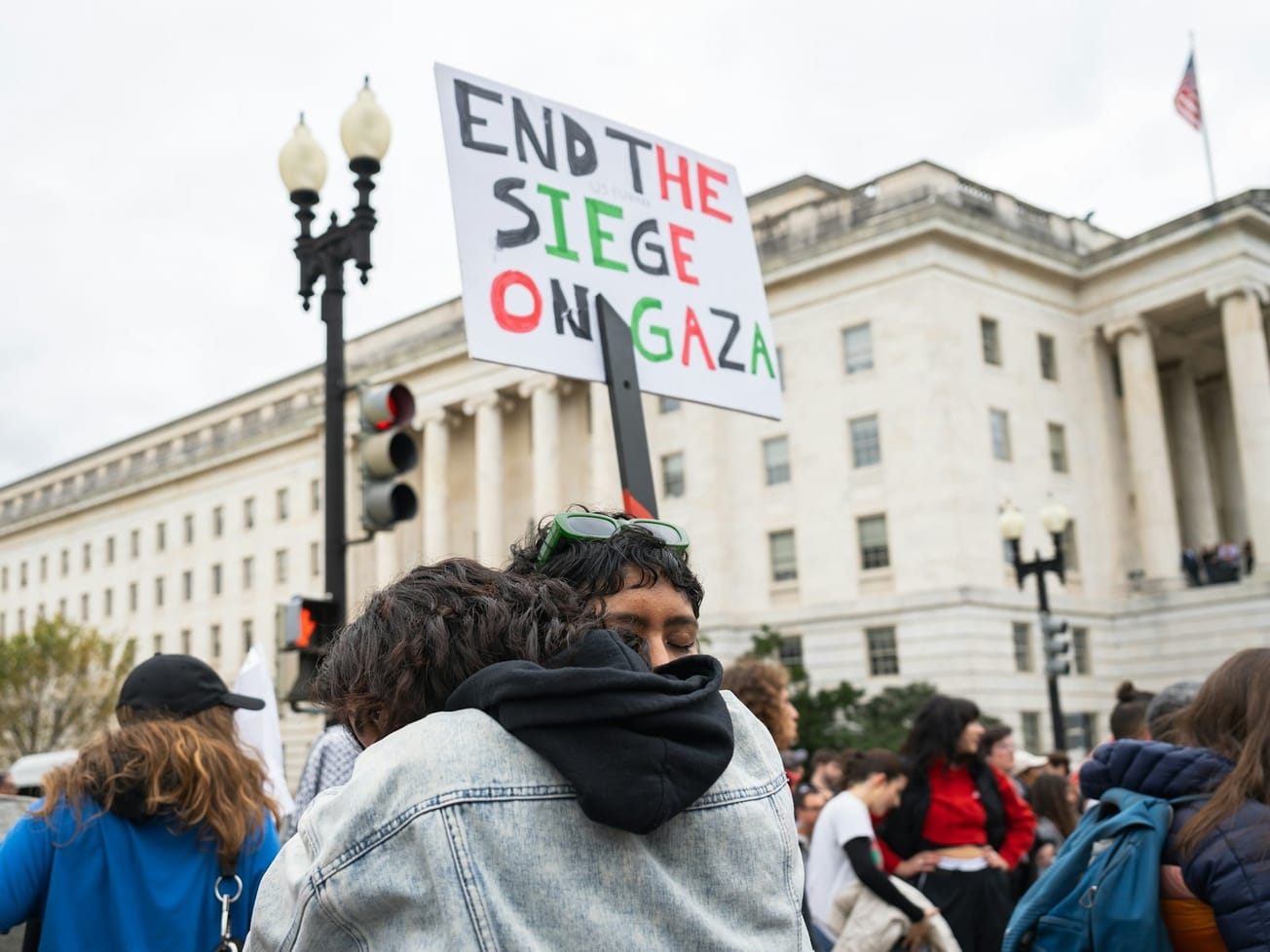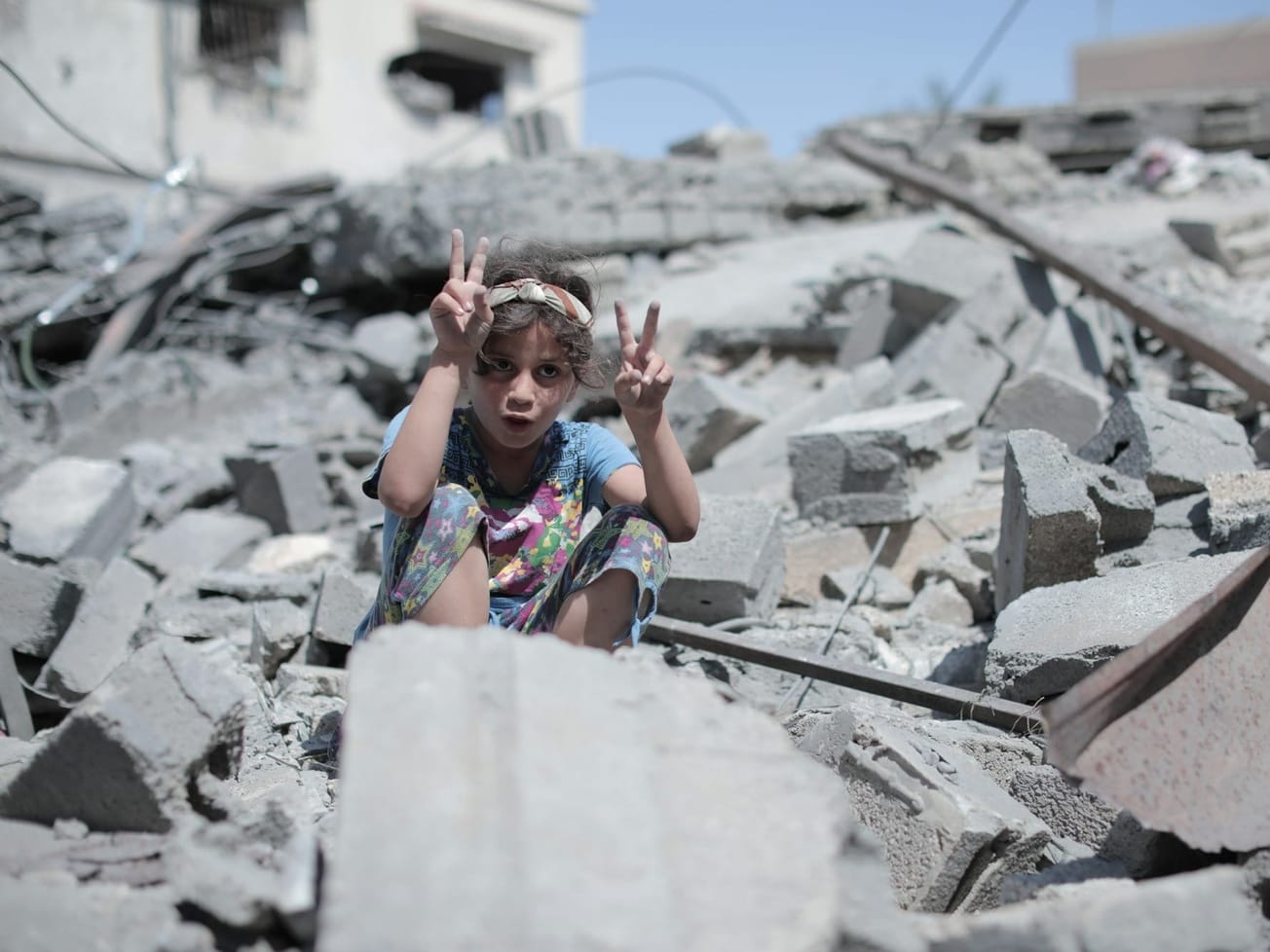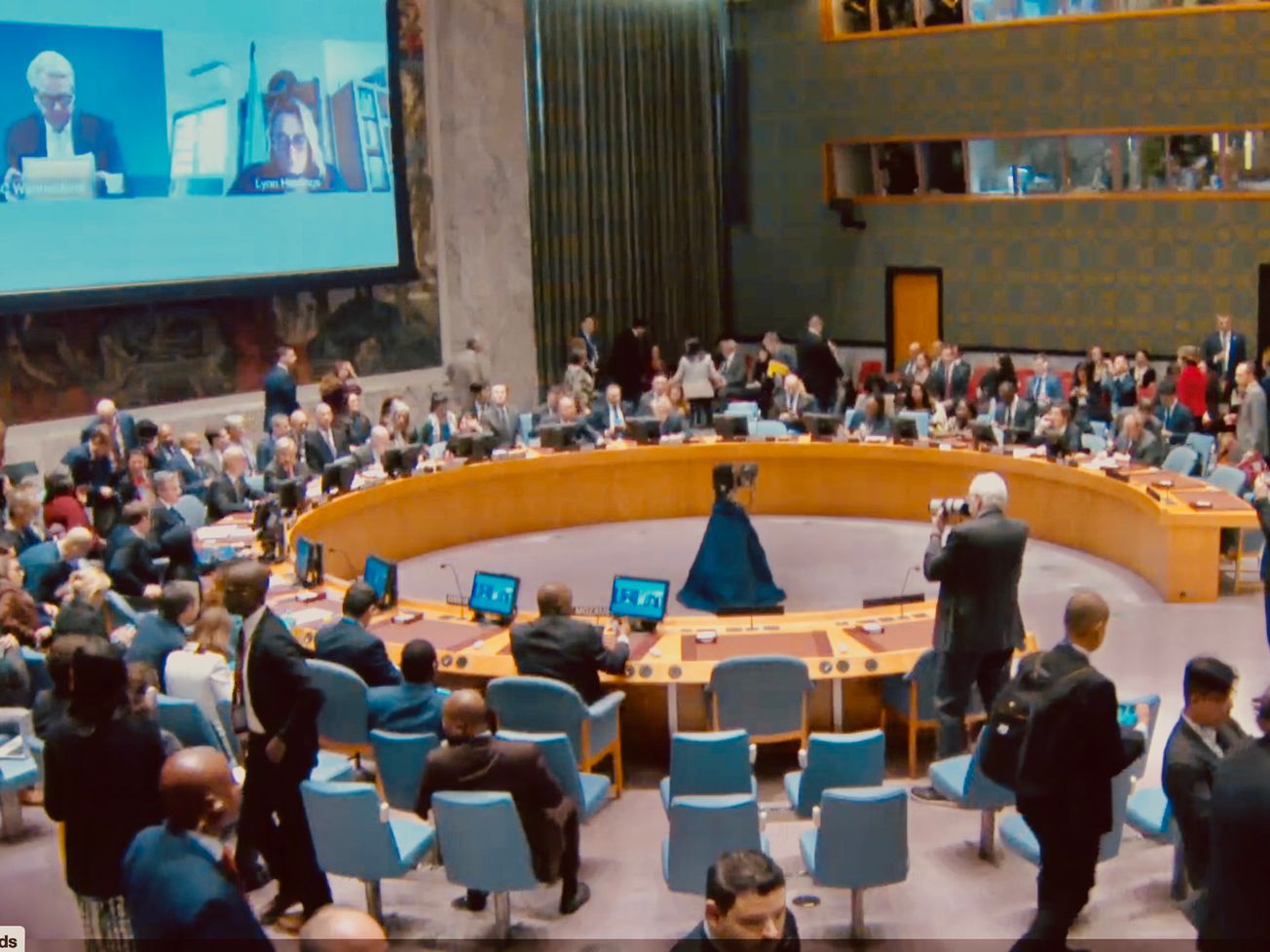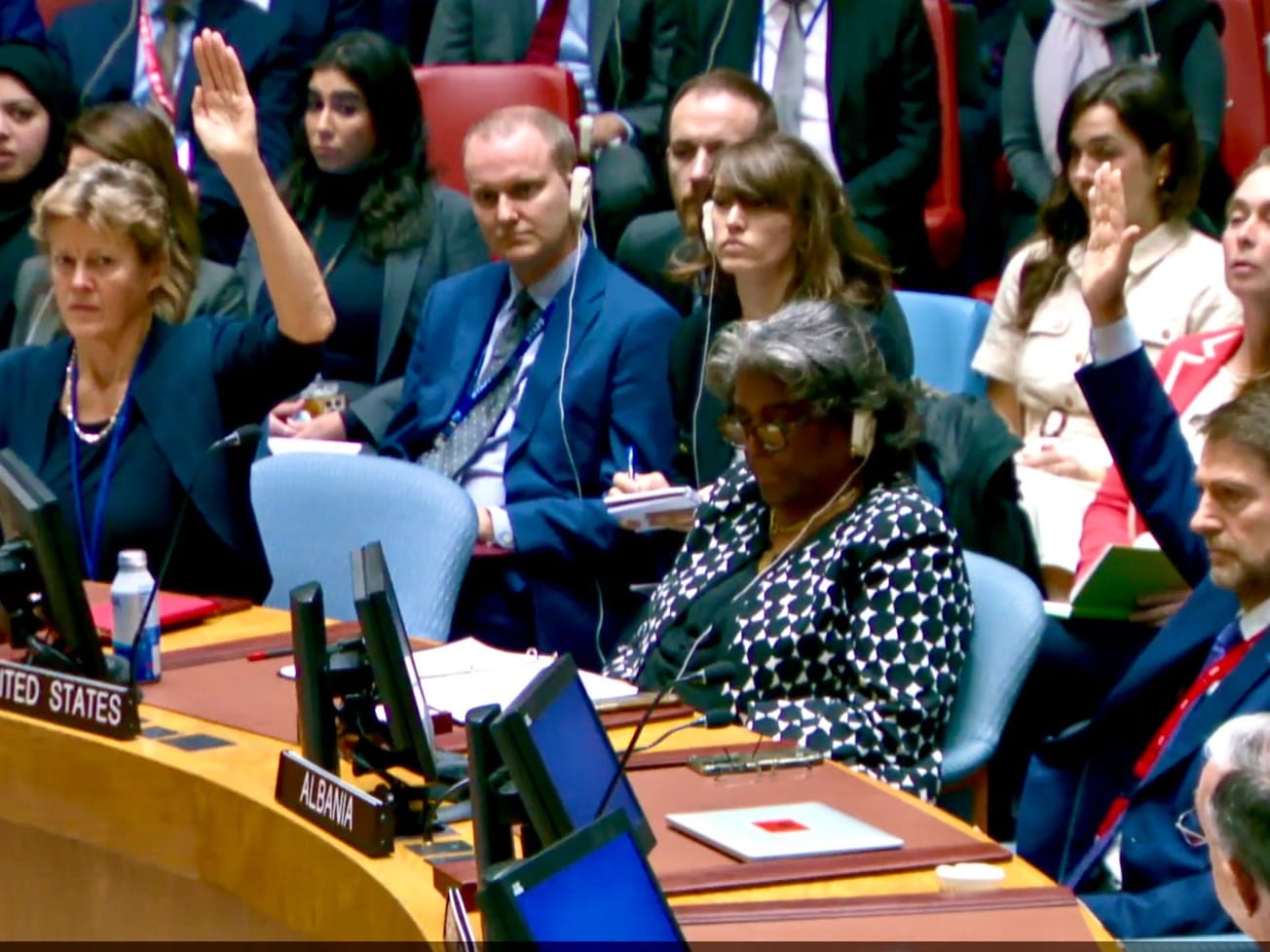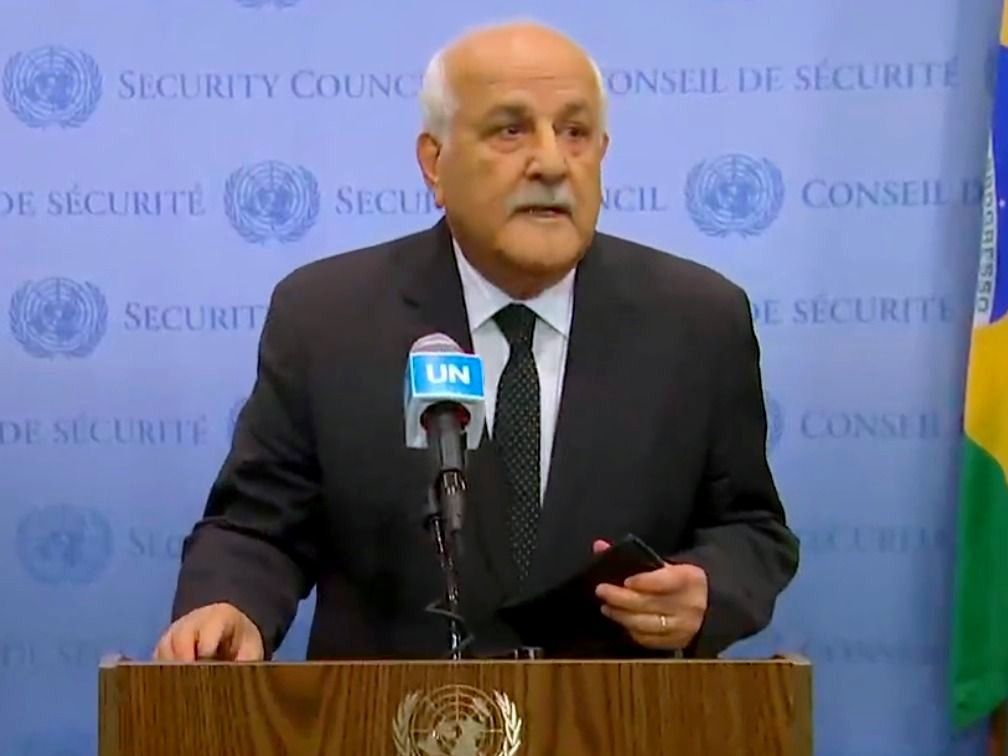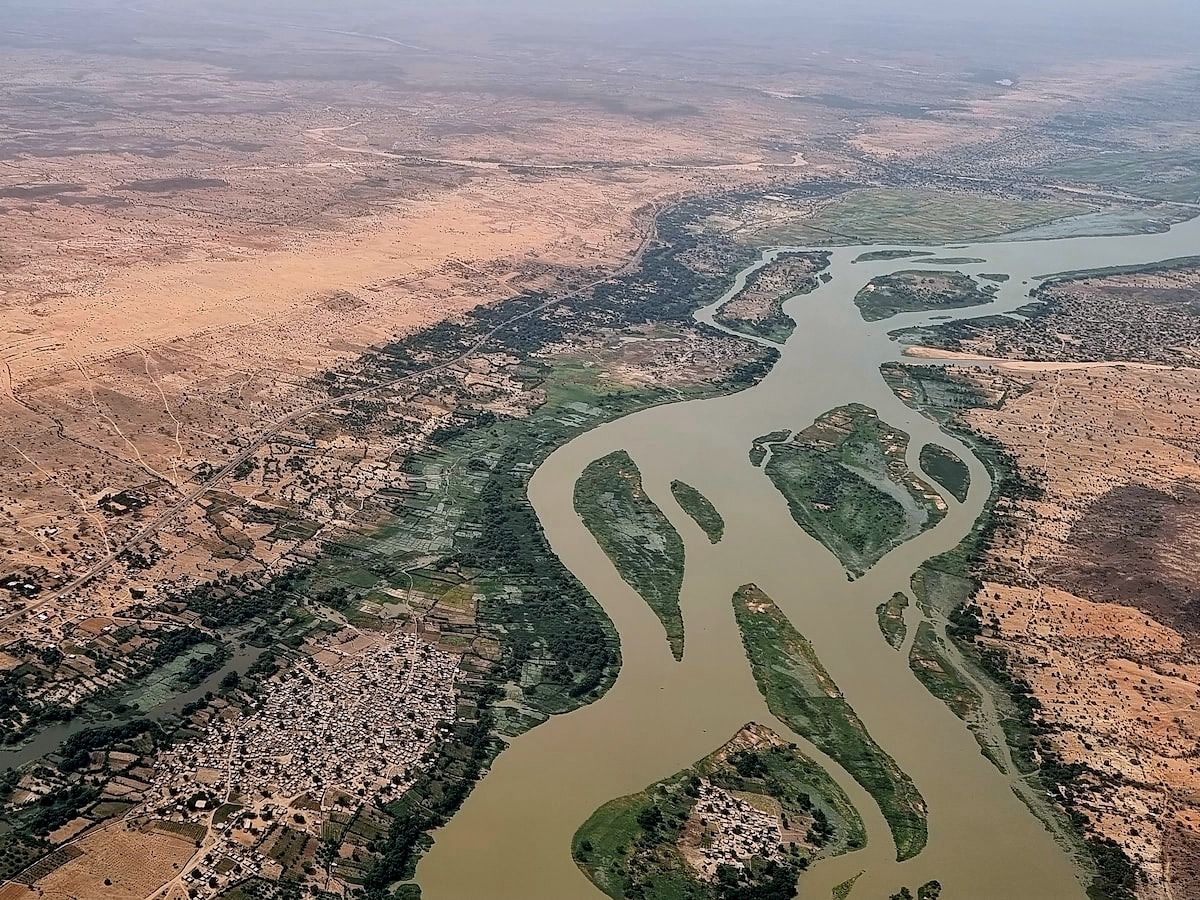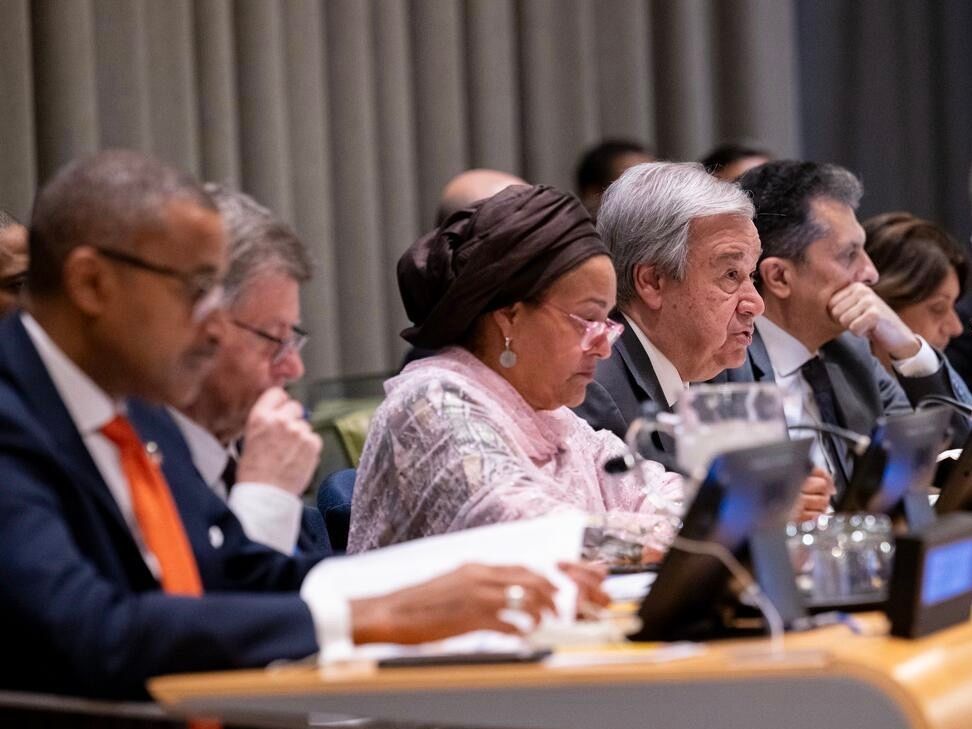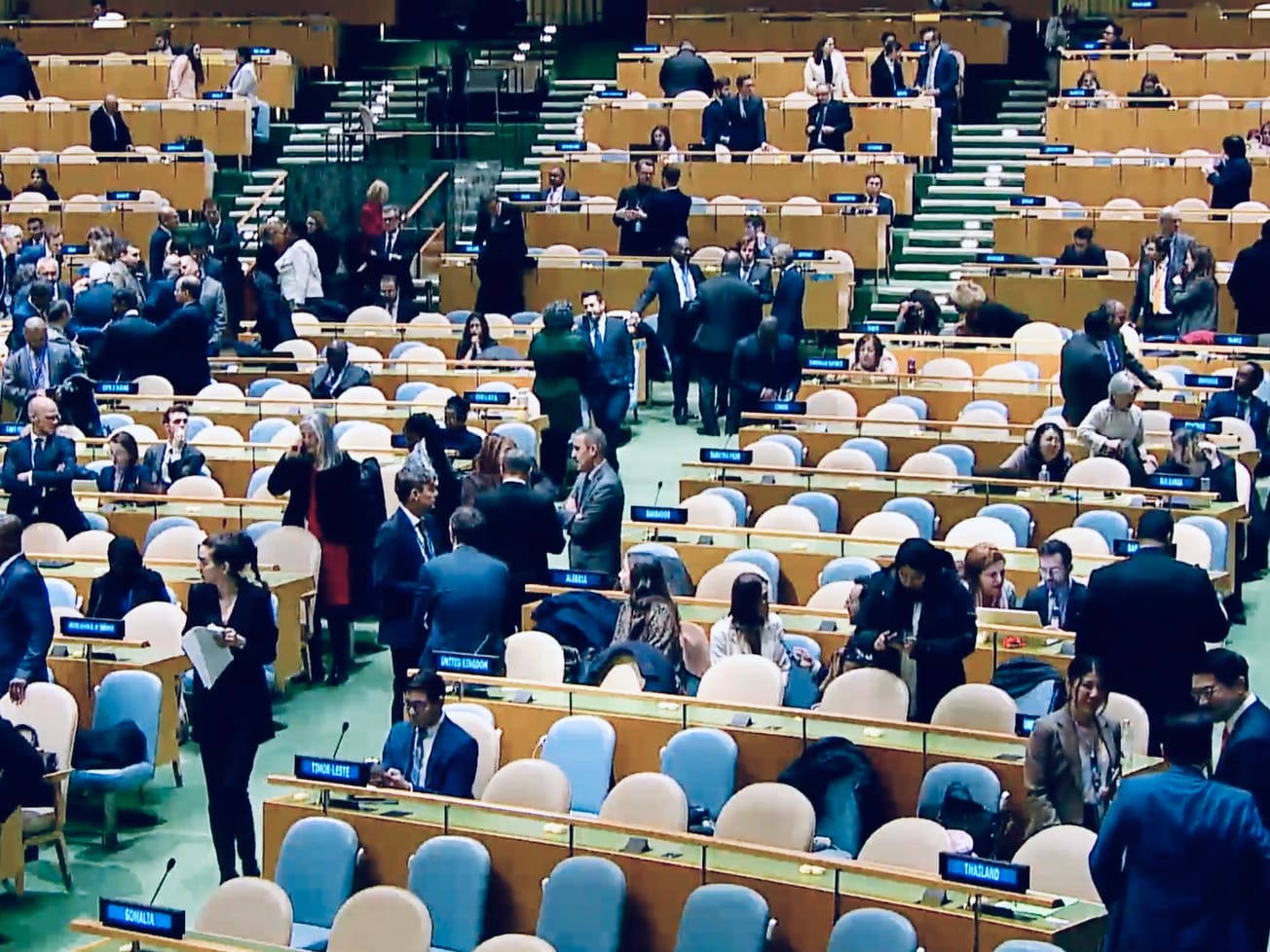
U.N. vote shows nation's broad support for Gaza cease-fire
Nations voted 153-10, with 23 abstentions, to demand a cease-fire and express “grave concern" for the humanitarian situation.
Our coverage of the world's efforts to solve global challenges and maintain peace and security based on an post-World War II international rules-based order.

Already have an account? Log in
Nations voted 153-10, with 23 abstentions, to demand a cease-fire and express “grave concern" for the humanitarian situation.
For the first time since becoming leader of the world body, António Guterres invoked Article 99 of the U.N. Charter.
Nikki Haley has adopted Trump's hard line against U.N. participation but stopped short of calling for total withdrawal.
Hundreds of people were allowed to enter Egypt from Gaza, which one U.N. official called a 'graveyard' for children.
Humanitarian agencies were forced to scale back as fuel and other items were depleted and diplomats were at an impasse.
Swiss right-wing populist and Socialist parties gained strength at the expense of Greens, reflecting increasingly conservative voter sentiment on issues like climate, health and migration.
While Israel pounded Gaza with increasingly intensifying airstrikes in response to Hamas' surprise attacks, the U.N. chief emphasized the rules of war must be obeyed.
The U.S. blocked a U.N. Security Council resolution on the Israel-Hamas war, while Russia pushed resolutions that do not mention Hamas or Israel's right to self-defense.
The U.S. and China said they favored a statement on Gaza, but it failed for lack of consensus approval. The U.N. chief condemned the attacks and appealed for the fighting to end.
By region, the word clouds differ but are similar enough to show the top shared concerns at the U.N. General Assembly.
Ukraine's President Volodymyr Zelenskyy and U.S. President Joe Biden each took the stage at the U.N. General Assembly to emphasize there are global stakes in the outcome of the war.
Despite the absences, the politics of catastrophe and climate inaction toward Earth's impaired health await the assembly's annual gathering of world leaders next week in New York.
The suspension, a typical reaction to Africa's military coups, bars Niger from voting on the A.U.'s proposals.
African Union and West African regional bloc leaders supported deployment of a standby military force and demanded that Niger's junta release the ousted president.
ECOWAS' 15 nations set an Aug. 6 deadline for Niger's military to restore to power the democratically elected president.
Guterres' bid to revitalize multilateralism is at the heart of his “New Agenda for Peace” policy paper for the United Nations.


